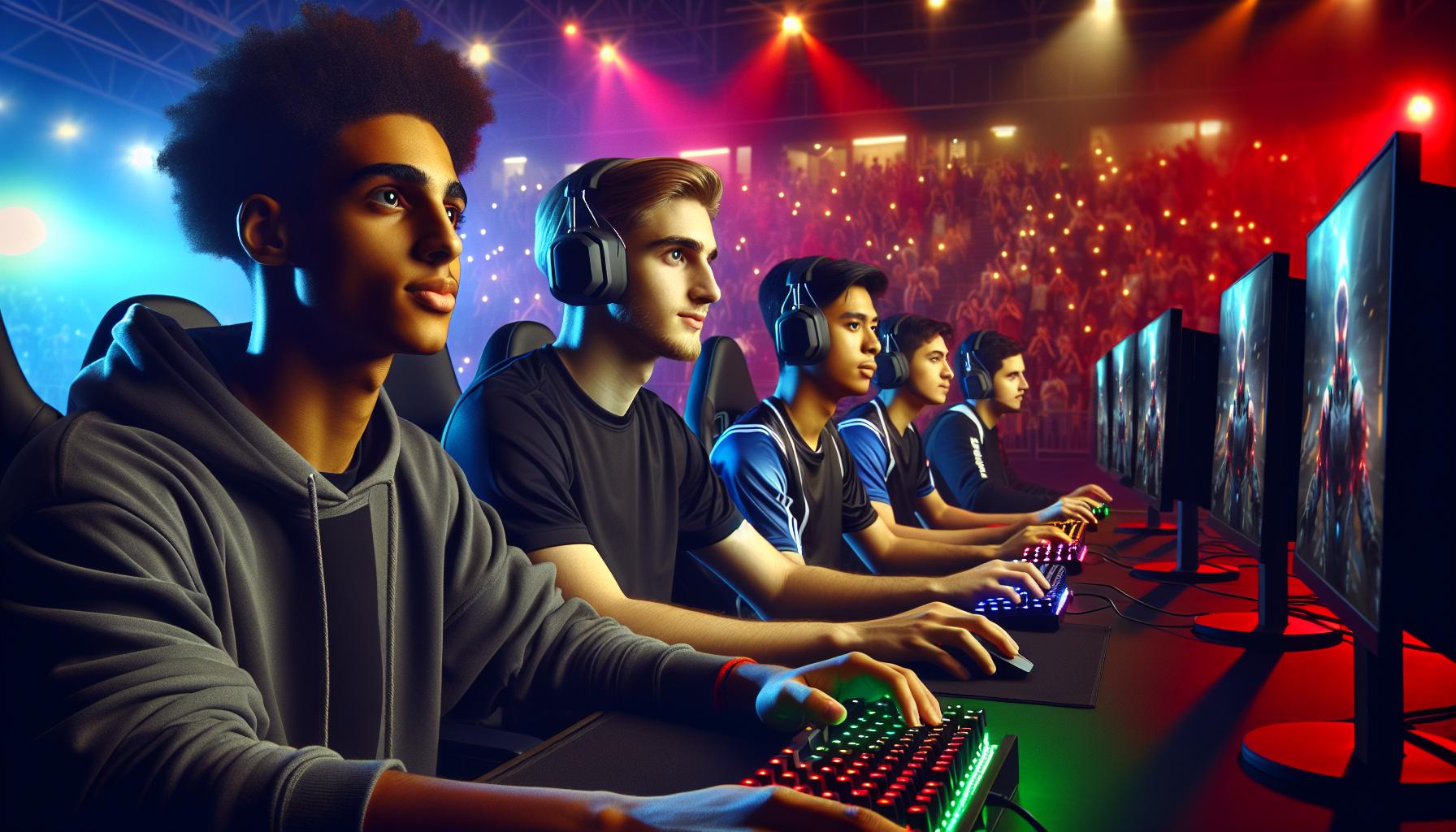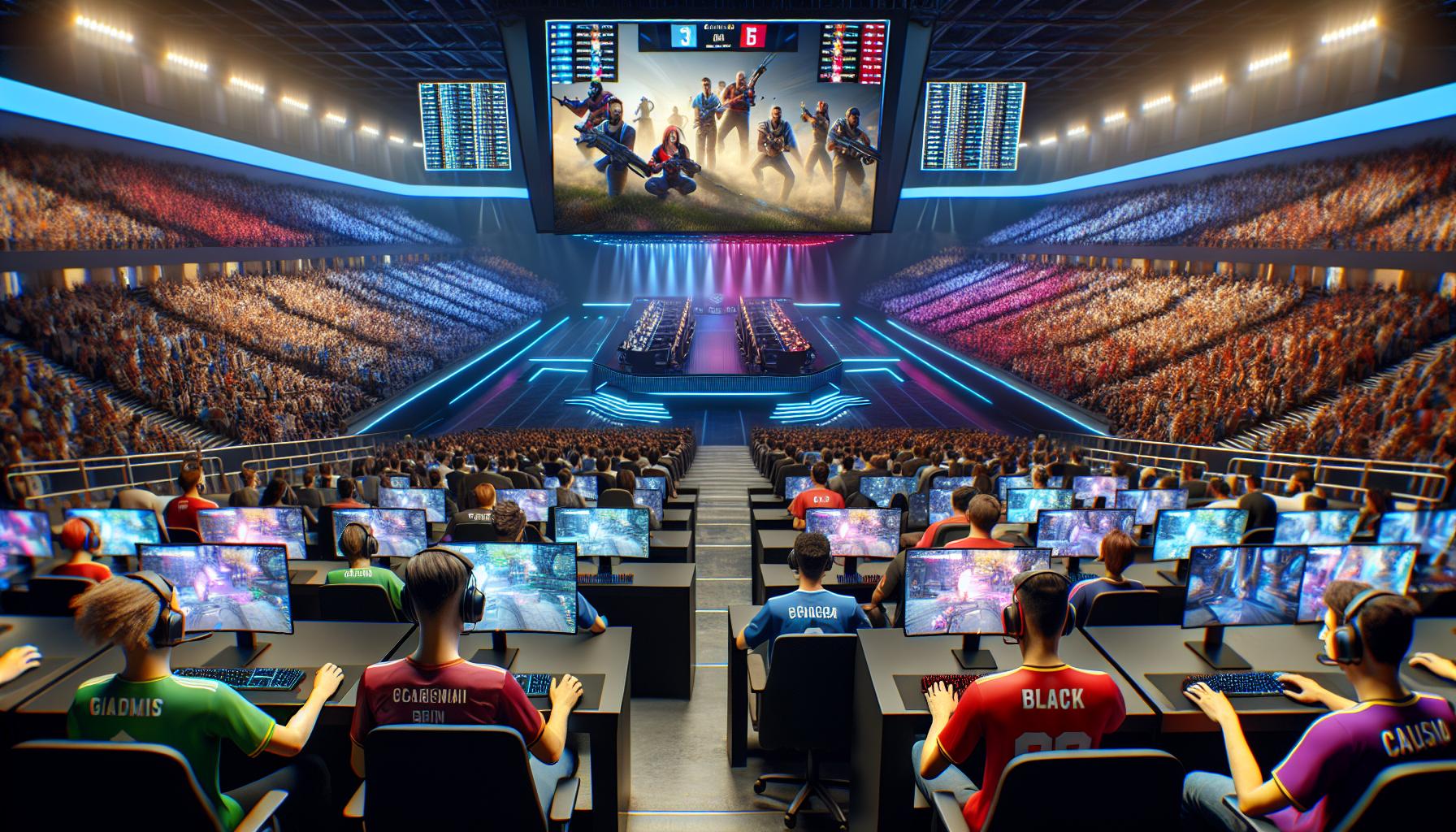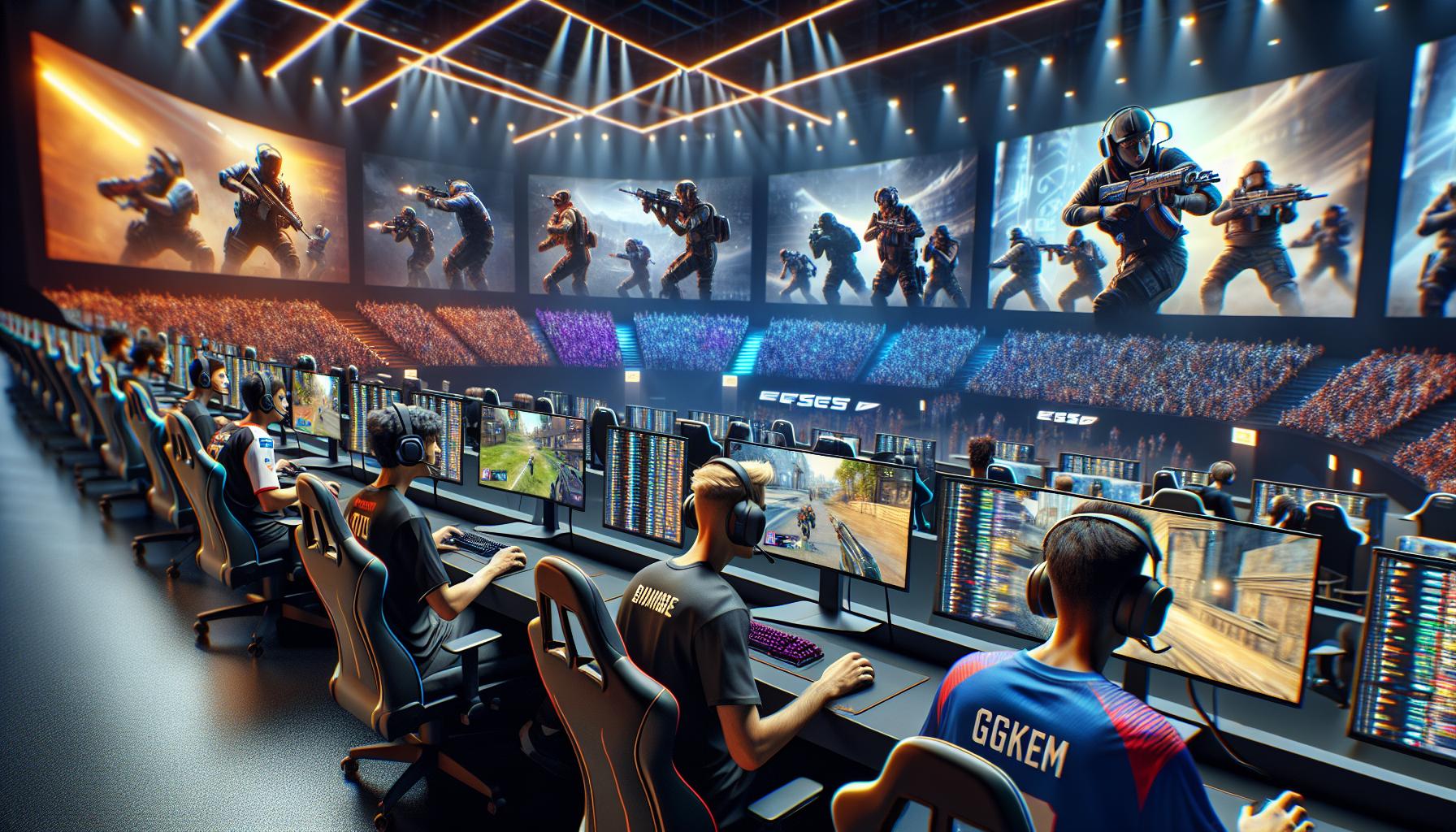As the world of competitive gaming continues to evolve, the concept of esports entering the Olympic arena has sparked excitement and debate. With millions of fans and players globally, esports has transformed into a legitimate sport, capturing the attention of traditional sports organizations. The potential inclusion of esports in the Olympic Games could redefine how we view competition and athleticism.
This article explores the growing list of esports titles that have been considered or featured in Olympic events. From iconic games that have shaped the industry to emerging titles gaining traction, understanding this dynamic landscape provides insight into the future of esports. As the line between traditional sports and digital competitions blurs, the excitement surrounding the esports Olympics games list is just beginning to unfold.
Key Takeaways
- Growing Legitimacy of Esports: Esports is evolving into a legitimate sporting category, increasingly recognized by traditional sports organizations including the International Olympic Committee (IOC).
- Potential Olympic Titles: Key esports games under consideration for Olympic inclusion include League of Legends, Dota 2, Counter-Strike: Global Offensive, Overwatch, and Street Fighter V due to their popularity and competitive scene.
- Cultural Shift in Competition: The integration of esports into the Olympics reflects a significant cultural shift in how competition is perceived, merging digital skill with traditional athleticism.
- Audience Engagement and Marketability: With over 500 million global fans, esports presents an opportunity to attract younger audiences, thus broadening the reach and relevance of the Olympic Games.
- Challenges to Overcome: Regulatory issues, the diversity of game genres, the longevity of esports titles, and cultural perceptions pose challenges for the potential inclusion of esports in the Olympics.
- Emerging Titles on the Rise: New games like Valorant, Apex Legends, Rocket League, Call of Duty: Warzone, and Fortnite are gaining traction and could play a significant role in the future of esports competitions at the Olympic level.
Esports Olympics Games List
Esports represents a significant shift in competitive gaming, merging digital skill with athleticism. Various organizations have explored the possibility of integrating esports into the Olympic Games. Popular esports titles under consideration include:
- League of Legends: A team-based strategy game that emphasizes cooperation and tactical planning.
- Dota 2: Known for its rich competitive scene, it features intricate gameplay and diverse characters.
- Counter-Strike: Global Offensive: A first-person shooter that showcases teamwork and strategy.
- Overwatch: A team shooter blending diverse characters with unique abilities.
- Street Fighter V: A prominent fighting game highlighting individual skill and reflexes.
The inclusion of esports in the Olympics could broaden the audience, appealing to younger generations and reinforcing the legitimacy of competitive gaming. Events simulating traditional sports, such as FIFA and NBA 2K, may bridge the gap between virtual and physical competitions.
As the dialogue continues, stakeholders emphasize the importance of rigorous standards for esports similar to those in traditional sports. The ongoing discussions suggest a significant transition in how esports is perceived within the global sporting community.
Importance of Esports in the Olympics

Esports hold significant importance in the context of the Olympic Games, reflecting shifts in how competition is perceived globally. The integration of esports into the Olympic framework could reshape sporting culture and attract diverse audiences.
Historical Context
The history of esports dates back to the early 1970s, with the first recognized video game competition occurring in 1972 for the game Spacewar!. Competitive gaming gained momentum with tournaments for titles like Street Fighter II in the 1990s. However, the vital turning point occurred in the 2000s, when massive multiplayer online games and streaming platforms like Twitch emerged. This era solidified esports as a mainstream phenomenon, parallel to traditional sports, thereby setting the stage for potential Olympic inclusion.
Current Trends
Current trends indicate a growing acceptance of esports among established sporting bodies. Major organizations, including the International Olympic Committee (IOC), acknowledge the appeal of competitive gaming. Tournaments now fill arenas with thousands of spectators, demonstrating the passionate fanbase. Recent studies show that esports reach over 500 million global fans, underscoring their marketability. As esports continue to gain traction, various titles are under consideration, representing a range of genres and competitive formats. This evolution reflects an expanding definition of sports that resonates with a younger demographic, passionate about gaming and digital engagement.
Major Esports Titles in the Olympics

Esports has gained momentum as a key element in the evolving landscape of competitive sports. Several popular games and emerging titles are at the forefront of this progression, making a strong case for their inclusion in the Olympic Games.
Popular Games
- League of Legends: This multiplayer online battle arena game has a massive global fan base and attracts millions of viewers during its annual World Championship.
- Dota 2: Known for its strategic depth and high-stakes tournaments, Dota 2 features The International, which offers one of the largest prize pools in esports history.
- Counter-Strike: Global Offensive: This tactical first-person shooter boasts a dedicated following and has established prestigious tournaments like ESL One and IEM.
- Overwatch: With its team-based gameplay and diverse character roster, Overwatch has gained prominence through competitive leagues such as the Overwatch League.
- Street Fighter V: As a cornerstone of the fighting game community, Street Fighter V continues to be a significant title with events like EVO showcasing its enduring popularity.
- Valorant: This tactical shooter combines elements of traditional FPS gameplay with hero-based mechanics, quickly gaining traction in the competitive scene.
- Apex Legends: This battle royale title has attracted a significant player base and showcases smooth gameplay mechanics, positioning itself well for competitive esports.
- Rocket League: With its unique combination of soccer and racing, Rocket League has captured audience interest and has established numerous tournaments across the globe.
- Call of Duty: Warzone: As a popular battle royale addition to the Call of Duty franchise, it enjoys a thriving competitive community and a robust tournament scene.
- Fortnite: This game revolutionized the battle royale genre and continues to influence the esports landscape with its high-profile events and celebrity player involvement.
Future of Esports in Olympic Games

The future of esports in the Olympic Games presents significant opportunities and challenges. As the competitive gaming landscape evolves, it’s crucial to examine potential new additions and the obstacles that may arise.
Potential New Additions
Various esports titles show promise for inclusion in future Olympic events. Notable contenders include:
- League of Legends: Popular worldwide, it features strategic gameplay with a massive player base and established tournaments.
- Dota 2: Renowned for its complexity and depth, it boasts high-stakes international competitions, attracting millions of viewers.
- Counter-Strike: Global Offensive: Known for its tactical gameplay, this title maintains a robust competitive scene and a dedicated fan base.
- Overwatch: Combining team-based strategies with unique character abilities, it has gained popularity in both casual and competitive settings.
- Street Fighter V: A classic fighting game, it has a rich history in esports and continues to capture the attention of competitive gamers.
Emerging titles also hold potential, including:
- Valorant: With its mix of tactical shooter mechanics and unique character abilities, it’s quickly gaining traction in competitive circles.
- Apex Legends: This battle royale game showcases fast-paced action and strategic teamwork, appealing to a wide range of players.
- Rocket League: A unique blend of soccer and racing, it offers exciting gameplay and has seen significant engagement in esports tournaments.
- Call of Duty: Warzone: This popular title features a battle royale format and has cultivated a large viewer base.
- Fortnite: Its cross-platform success and heavily promoted competitions make it a strong candidate for Olympic inclusion.
These games reflect the diverse interests of the younger demographic, highlighting the evolving definition of competitive sports.
Challenges Ahead
Despite the potential, several challenges exist regarding the inclusion of esports in the Olympics. Some key obstacles include:
- Regulatory Issues: Establishing comprehensive guidelines that define esports as a legitimate sport presents complexities that traditional sports organizations must address.
- Diversity of Games: The vast array of game genres complicates the selection process. Striking a balance between various game types while ensuring fair representation can prove challenging.
- Game Longevity: Popularity fluctuations may impact the long-term viability of certain titles. The Olympic Games strive for consistency and stability in participant engagement.
- Cultural Perceptions: Bridging the gap between traditional sports and esports hinges on overcoming skepticism from existing athletic communities about the legitimacy of gaming as a competitive pursuit.
These hurdles necessitate critical discussions between stakeholders in traditional sports, game developers, and esports organizers, shaping the potential trajectory of esports in the Olympic framework.
The Evolution of Competitive Gaming
The potential integration of esports into the Olympic Games signifies a pivotal moment in the evolution of competitive gaming. As traditional sports organizations recognize the appeal of esports, the landscape of athletic competition is set to transform. The diverse array of titles under consideration illustrates the growing acceptance and legitimacy of esports as a sport.
With the ability to attract younger audiences and redefine sporting culture, esports could reshape the Olympic experience. While challenges remain, the ongoing dialogue among stakeholders will be crucial in navigating the complexities of this new frontier. The excitement surrounding the future of esports in the Olympics is palpable, promising a thrilling evolution in how competition is perceived and celebrated.